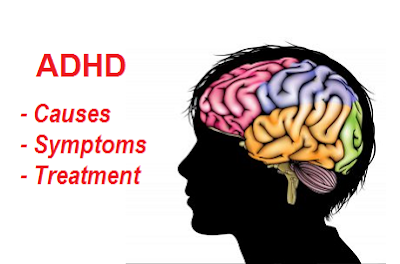ADHD is the abbreviation of Attention Deficit Hyperactivity Disorder. It is a developmental disorder characterized by concentration problems, hyperactive behavior and / or impulsive behavior.
Treatment plan
If you or your child have ADHD, then we think together with you and your child about an appropriate form of treatment or help. In a treatment plan, together with you and your child, we set out which goals we will work for and what resources we use to achieve this.
Treatments
Types of treatments that we do are:
- What it means for you and your family that someone in the ADHD family has
- Which approach seems best for you and / or your child and the environment
- In which cases you can use extra help
- How to best deal in difficult parenting situations
Causes of Attention Deficit Hyperactivity Disorder (ADHD)
- ADHD is partly hereditary. This means that ADHD can be transferred through the parents. Sometimes children with ADHD have one or more family members with characteristics of ADHD. Children with ADHD benefit from an environment that helps them to develop, concentrate and learn as well as possible. This determines how much trouble they suffer and what the consequences are for their development.
- We know that the construction of the brain is something different in people with ADHD. For example, the front part of the brain (frontal lobe) and the small brain (cerebellum) are on average slightly smaller in people with ADHD. We also think that the front parts of the brain work less well with deeper parts of the brain. It is possible that the cooperation with the cerebellar is less successful as a result.
- Several substances are involved in the collaboration of the brain cells in different parts of the brain, such as dopamine and norepinephrine. In someone with ADHD the balance between these substances in the brain is disturbed.
Attention Deficit Hyperactivity Disorder (ADHD) Signs And Symptoms
- In ADHD, children can focus and hold their attention less well. Children with ADHD are also often more impulsive and motor-restless than other children. They may also have problems with planning and performing tasks.
- If your child has ADHD, many things also go well. Someone with ADHD can be spontaneous and energetic, decisive, sporty and honest. Also features such as creativity, sense of humor, sensitive and caring are appropriate for someone with ADHD.
- With ADHD, the following problems often occur:
- learning disabilities
- difficulty with authority
- suffer from anxiety
- suffer from tics (sudden involuntary movements or noises)
- sleep problems
- movement problems (stumbling, not writing neatly)
- problems in social situations
- planning problems
Attention Deficit Hyperactivity Disorder (ADHD) Treatment
Treatment plan
If you or your child have ADHD, then we think together with you and your child about an appropriate form of treatment or help. In a treatment plan, together with you and your child, we set out which goals we will work for and what resources we use to achieve this.
Treatments
Types of treatments that we do are:
- Medication
- Psychoeducation
- Parental / family guidance
- What it means for you and your family that someone in the ADHD family has
- Which approach seems best for you and / or your child and the environment
- In which cases you can use extra help
- How to best deal in difficult parenting situations
- Other forms of treatment

